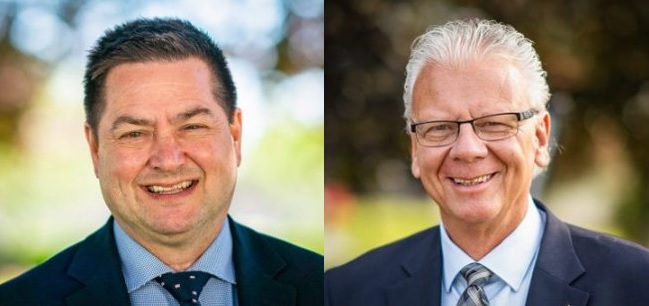A proposed change has local MLAs concerned that rural ridings in the province may not have as much of a voice in the legislature.
Bill 7 would give more power to the B.C. Electoral Boundaries Commission (BCEBC) by removing protections on rural ridings across the province, such as Kootenay East and Columbia River Revelstoke.
In 2014, the B.C. Liberals enacted an amendment that ensured a minimum of 17 seats across three regions, including the North and Interior, regardless of their population. This new bill would possibly change that.
“They’re going to add new seats to the province, based on population,” said Columbia River-Revelstoke MLA Doug Clovechok. “With the passing of Bill 7, it opens up the possibility for rural ridings to have less representation, and become bigger.”
Clovechok noted that his riding covers a landmass that is about the size of Switzerland, at just over 39,000 square kilometres.
“We recognize the fact that the province is growing and everybody needs to have representation, but it needs to be equitable. There’s a difference between equitable and equal,” said Clovechok.
Possible changes could mean rural ridings may incorporate parts of some ridings into others or some being combined.
This would mean MLAs have a more significant geographical area they have to keep in touch with.
“If you split the Kootenays into two areas, it would be such a huge barrier for MLAs to meet with their constituents,” said Tom Shypitka, Kootenay East MLA. “It would be a very daunting task to represent the area effectively. We’re hoping that the B.C. Electoral Boundaries Commission will recognize that fact.”
Provincial Government officials said Bill 7 would introduce amendments to enhance the commission’s ability to respond to population growth.
Shypitka said the commission is open to public input, so he is working to gather opinions from communities and residents.
“I’ll be talking to regional representatives across the riding and around the Kootenay region to voice their opinion, write letters and send in letters of support to recognize these geographical boundaries,” explained Shypitka. “The B.C. Electoral Boundaries Commission will be meeting in October, so we have until then to have our voices heard. We need to be represented by more than just population, we need to take into consideration geographical boundaries, which B.C. is very abundant of.”
Clovechok also encourages residents of his riding to voice their opinions.
“It’s going to be really important that everybody gets out, when the commission comes to your town or your area, you let them know how you feel about this,” said Clovechok.
According to B.C. officials, the amendments would allow for special consideration to be used regarding geography and demographics. The BCEBC will consider these factors alongside means of communication and transportation to ensure effective representation.
More: Bill 7 (B.C. Government)




